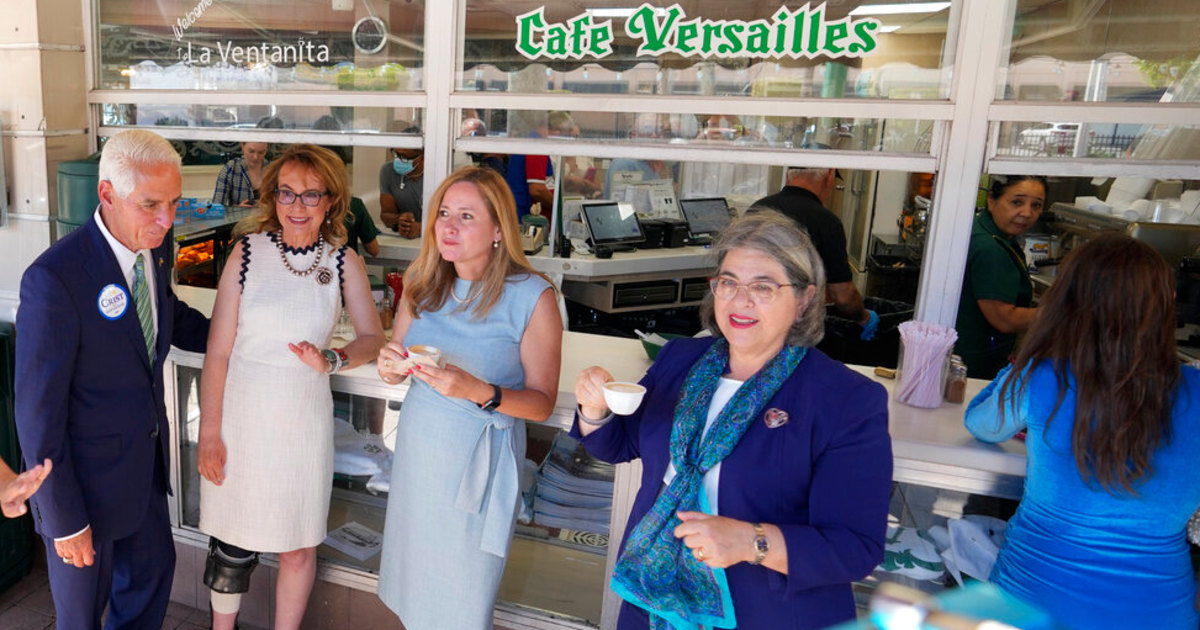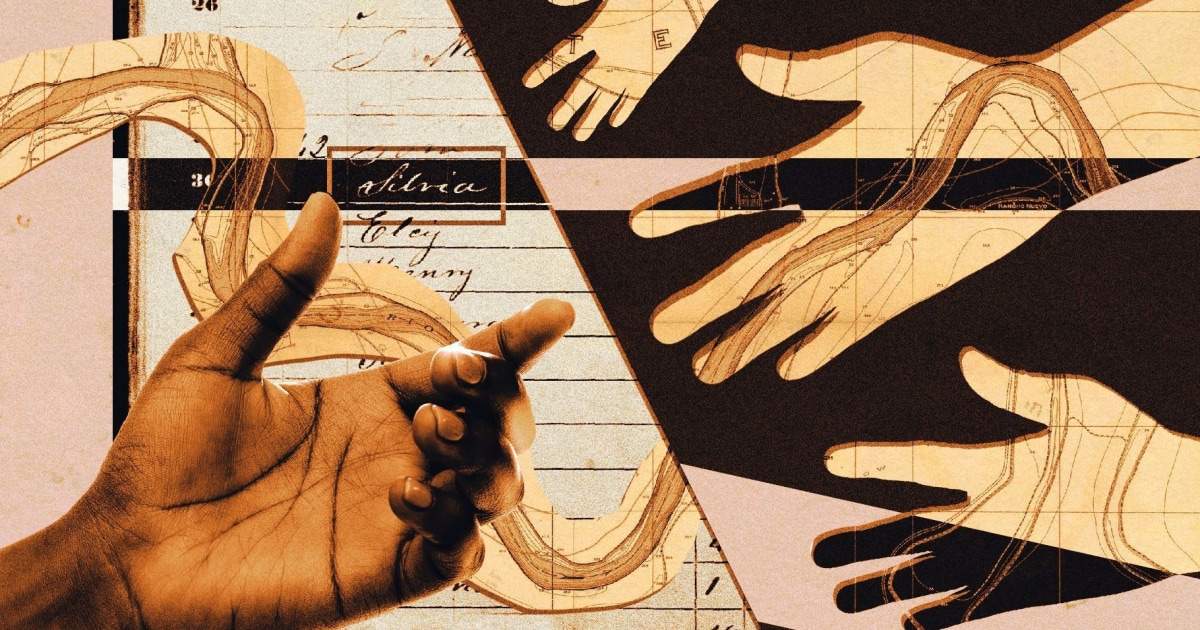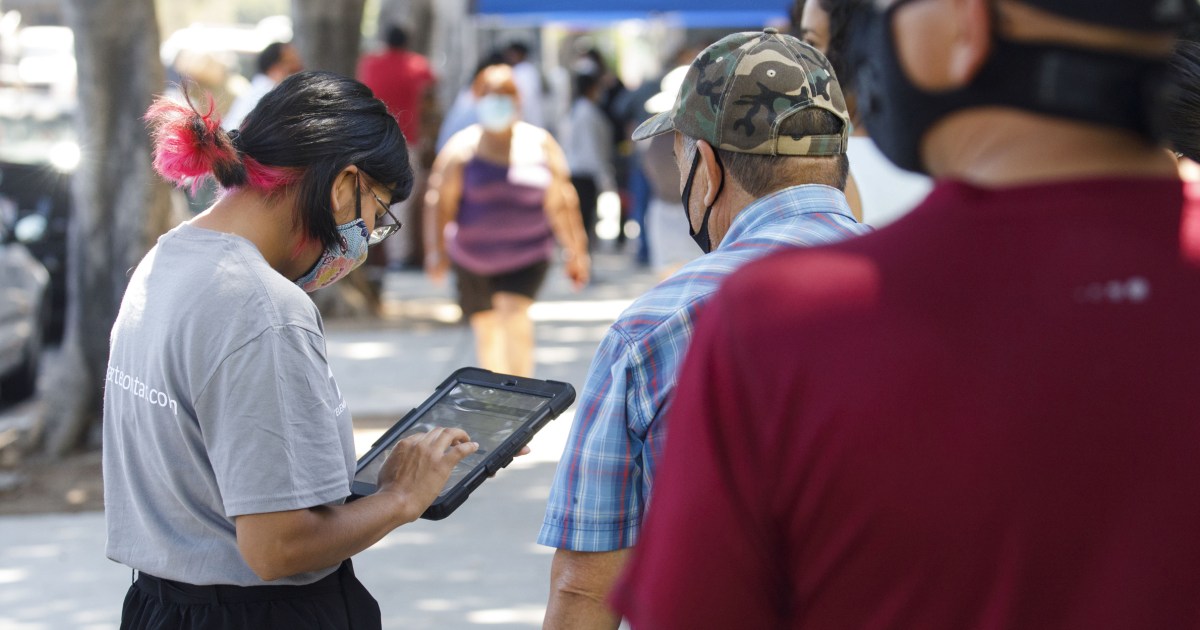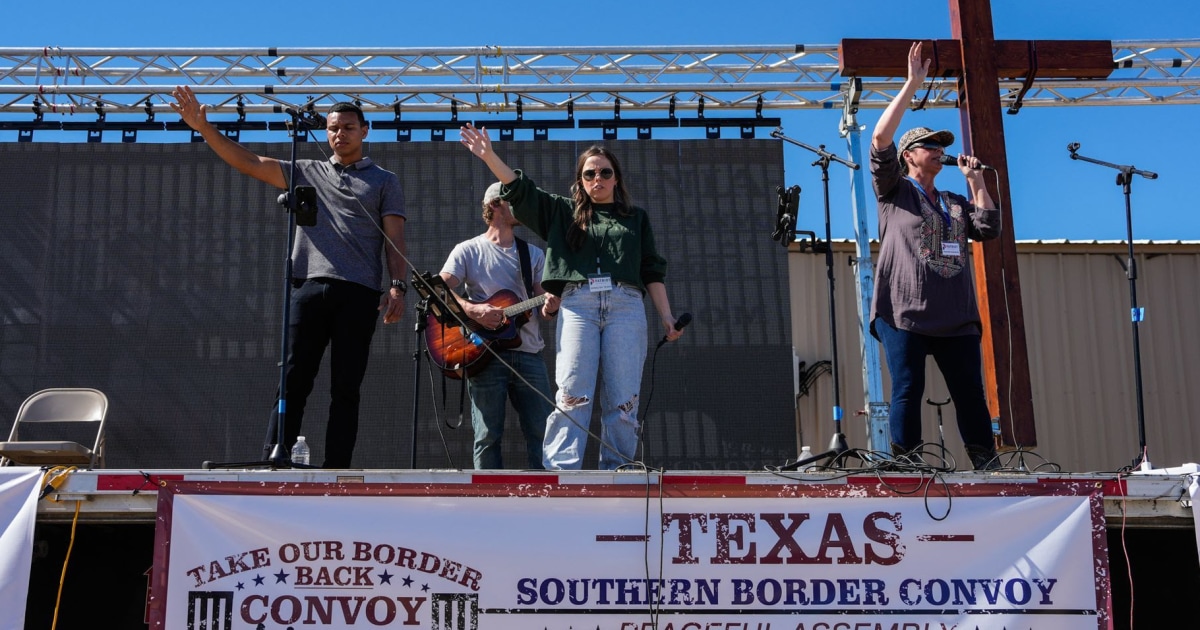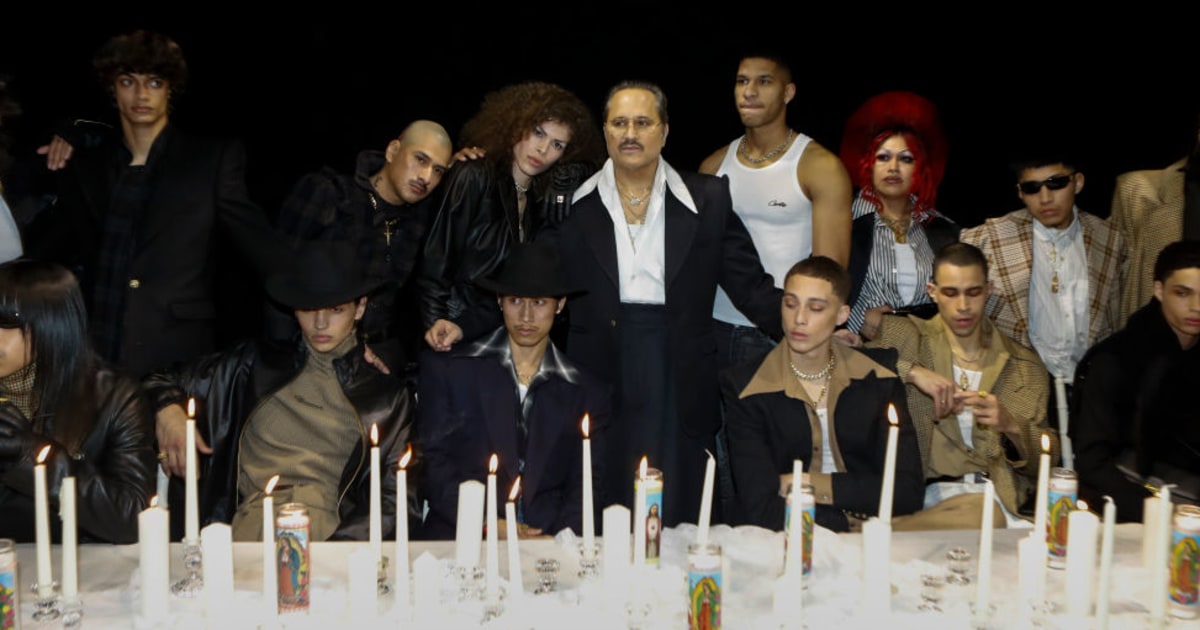By Marina E. Franco and Russell Contreras
Welcome to Axios Latino, a newsletter designed to tell you every week the stories that have a special impact on the Latino communities in the United States and in Latin America.
If you are interested in subscribing and receiving it in your mail in English, you can do so by clicking here.
Every week we will publish the
newsletter
on Noticias Telemundo in Spanish for those who prefer it.
Sign up here to read the newsletter in English.
Secretary of State Anthony Blinken will travel to Costa Rica next week, where he will meet with leaders and delegates from Central America and Mexico to discuss issues such as migration and climate change.
While the vice president, Kamala Harris, will announce plans with a dozen companies and organizations to invest in the Central American Northern Triangle.
The projects include one by Microsoft to expand internet access in the region and by Nespresso to buy coffee beans in the area.
1 topic to highlight: What issues concern the Latino community the most?
Gun violence, discrimination and the coronavirus are the topics that have the most in alert to Latinos in the United States in 2021, according to an Axios survey with Ipsos on the relations between different races and ethnic groups a year after George's death. Floyd.
Data from the Axios-Ipsos Hard Truth Civil Rights Poll;
margin of error is ± 2.8% Andrew Witherspoon / Axios
Why it matters
: The results suggest that Hispanics are less optimistic about the future than non-Latino whites, but more than blacks, after a year of pandemic and the largest protests against systemic racism and police violence.
In numbers:
Four out of 10 Latinos surveyed said that the coronavirus continues to concern them most, in contrast to 23% of non-Hispanic whites surveyed.
About 32% of Hispanics said they are especially concerned about crime and gun violence, while 28% of whites and 43% of blacks said the same.
Nearly three in 10 Hispanics said that racial-ethnic injustice and discrimination was their biggest concern, compared to 59% of blacks and 17% of non-Hispanic whites.
Fun fact:
Only 21% of Hispanic adults said migration is a key concern, the same number that highlighted climate change as a concern.
Read more about the poll
2. Latina police officers report sexual abuse at work
Disturbing details: Houston Latina policewomen denounce superiors for sexual abuse
May 24, 202101: 47
Texas Harris County policewomen say they suffered abuse and harassment while trying to do their job because their supervisors at the first sheriff's precinct created a "playground intended for sexual exploitation."
More details:
A civil lawsuit accuses police officers of recruiting young Latina officers for covert operations against human trafficking.
They denounce that:
One of the recruits was ordered to allow herself to be sexually assaulted by a rape suspect in order to allegedly arrest him on the spot;
policemen were made to change and try on dresses in the deputy chief's office when he was present, and to be groped without justification by colleagues posing as prostitution clients.
One of the complainants claims that she was fired when she tried to report what happened to the internal affairs office.
The overall situation:
More diverse police departments have proven to be more effective, but women - especially minority ones - remain underrepresented in law enforcement across the country.
Justice Department studies indicate that women are concerned about ongoing barriers to recruitment, such as working in work environments that are hostile, and where they experience sexism or even explicit harassment.
The other version:
Police Chief Alan Rosen responded to the lawsuit by saying that he is trying to "question the good reputation of the working men and women" of the precinct.
3. Mexico's deadly political campaign is nearing its end
Bloody electoral campaign in Mexico: 83 candidates have been assassinated in eight months
May 14, 202101: 41
At least 88 politicians in Mexico have been assassinated, and more than 100 have reported being threatened and even kidnapped, in the electoral period that will end next week.
This week a municipal candidate, Alma Barragán, was assassinated during a campaign event.
Why it matters
: This electoral period is already the second bloodiest since there is a record, after more than 140 people linked to the campaigns were killed in the 2018 general elections.
Experts indicate that electoral violence is due both to organized crime wanting to remove candidates that could affect their business and politicians in turn seeking to get rid of rivals.
In numbers
: 75% of the politicians assassinated since September were opposition candidates at the state level, according to risk analysis consultancy Etellekt.
According to estimates, a local politician is twice as likely to be assassinated in Mexico than a civilian is;
the country has one of the worst homicide rates in the world.
Around 94% of crimes in Mexico go unreported, with the so-called opaque figure compiled by the official statistical institute;
of those that are reported, only 1% are usually resolved or punished, according to analysis.
The general situation:
There are 21,000 local, state and federal positions in dispute as of June 6, including the entire Chamber of Deputies;
It is the highest figure in the history of the country.
4. Caregivers demand conditions that recognize their value as essential workers
Shoshana Gordon / Axios
Home health care workers, who are mostly Latina and black women, are among the lowest paid in the United States, even as the pandemic has shown how valuable and important their work is.
Why it matters:
Many have no benefits, like access to Medicaid, and earn $ 10-13 an hour on average.
They denounce that with this they barely cover the cost of their trips to the homes of their clients.
The Joe Biden Administration said its labor market plan seeks to improve the wages of these people "whose work has been undervalued and underpaid for too long."
In her words:
"We belong to the health [system]. But only by name, not by right," caregiver Obelina del Carmen told Noticias Telemundo.
She does not have health insurance and caught COVID-19 while doing her job.
5. Puerto Rico brings its push for statehood to Congress
Posters in favor of Puerto Rico's statehood before one of the referendums on the matter on the island, in 2017.Ricardo Arduengo / AFP via Getty Images
Six Puerto Ricans have been elected official lobbyists for the island in an attempt to convince congressmen that they are about to debate legislation on the political status of the island.
Why it matters
: There are two measures before Congress on Puerto Rico, and the island appears to be closer than ever to resolving its status after nearly a century of discussions.
One measure is sponsored by Florida Representative Darren Soto and endorsed by Puerto Rican delegate on Capitol Hill, Jennifer González Colón.
The idea of the legislation, if it is approved, is that Puerto Rico have a simple and direct process to join the union as Hawaii did in the mid-20th century.
Another proposal is promoted by New York representatives Nydia Velázquez and Alexandria Ocasio-Cortez, and by Senator Bob Menéndez.
It encourages a group of Puerto Rican delegates to determine the future status of the island - either as the 51st state or even in an independence process - with a "self-determination convention."
The Puerto Rican population has voted in favor of becoming a state three times during the last decade in referendums whose results are not binding.
However, the decision will be left to Congress.
Puerto Rican lobbyists seek to convince the House of Representatives to vote in favor of making the island a state as it has done with Washington DC
The background:
Puerto Ricans have US citizenship but lack political rights such as voting for the president or having congressmen with the power to vote or present measures.
The Fiscal Oversight Board, whose members are appointed by the White House and the House of Representatives, controls the budget of Puerto Rico, mired in a crisis due to its public debt and the effects of the hurricanes.
6. How feeling discriminated against is changing the hearts of Latinos
Doctor Esteban Lovato checks a patient with a stethoscope at an Oakland clinic in January 2014. David Paul Morris / Bloomberg via Getty Images
The perception of being stigmatized or discriminated against has strong links to abnormal changes to the structure of the heart, according to a preliminary study.
Why it matters
: Experts are increasingly warning that the negative effects of discrimination on health need to be taken into account.
The American Medical Association even recently identified racism as a threat to public health.
The study measured the left atrium and ventricle of more than 1,800 Latinos in New York City, Chicago, Miami, and San Diego.
He found several cases of enlargement of the atrium and ventricle, problems related to medical conditions such as hypertension and a tendency to have arrests.
In his own words:
"We need to study discrimination as a stressor and risk factor to identify vulnerable individuals," one of the study's authors, Jonathan Oxman, told the American Heart Association this week.
7. Break stigmata with the help of scissors
Guatemalan Éricka Pérez, who goes by the nickname
Lady Barber
, is making a splash in a male-dominated industry thanks to her complex designs and hand-crafted hair from her clients.
She is a barbera, indigenous and lives in Guatemala: her fight against machismo has been long
May 23, 202102: 12
More details:
Pérez denounces that she has felt discriminated against for being a barber, since tradition in her home in Olintepeque Quetzaltenango establishes that women should not cut men's hair.
But she says that little by little she has been changing minds and has managed to participate in international events such as the union awards called Barber Grammer.
And he has done it all while remaining somewhat faithful to part of his roots, and wearing the traditional costume of his people.
Thanks for reading, until next week.
Do you want to read the previous editions?
- The effects of trying to study during the pandemic
- An 'invisible' health problem in the pandemic
- Mexico in mourning;
Colombia and Puerto Rico demand justice
- A controversial count that does not favor Hispanics
- Plant trees as a migratory proposal
- An incentive to migrate
- Children in the migratory maelstrom
- The cry for justice in Mexico
- What is behind the emergency at the border


